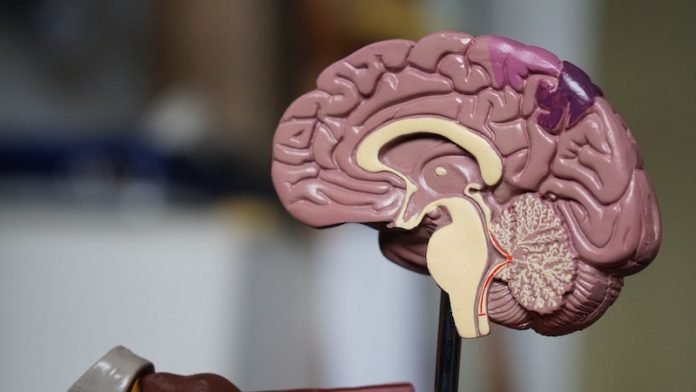
In a new study from Georgia State University and elsewhere, researchers found that COVID-19 patients who receive oxygen therapy or experience fever show reduced gray matter volume in the frontal-temporal network of the brain.
They found lower gray matter volume in this brain region was linked to a higher level of disability among COVID-19 patients, even six months after hospital discharge.
Gray matter is vital for processing information in the brain and gray matter abnormality may affect how well neurons function and communicate.
The finding indicates gray matter in the frontal network could represent a core region for brain involvement in COVID-19, even beyond damage related to clinical manifestations of the disease, such as stroke.
In the study, the team analyzed computed tomography scans in 120 neurological patients, including 58 with acute COVID-19 and 62 without COVID-19, matched for age, gender and disease.
The analysis showed patients with higher levels of disability had lower gray matter volume in the superior, medial and middle frontal gyri at discharge and six months later, even when controlling for cerebrovascular diseases.
Gray matter volume in this region was also strongly reduced in patients receiving oxygen therapy compared to patients not receiving oxygen therapy.
Patients with fever had a big reduction in gray matter volume in the inferior and middle temporal gyri and the fusiform gyrus compared to patients without fever.
The results suggest COVID-19 may affect the frontal-temporal network through fever or lack of oxygen.
The findings imply that gray matter changes in the frontal region of the brain may underlie the mood disturbances commonly exhibited by COVID-19 patients.
They demonstrate changes to the frontal-temporal network could be used as a biomarker to determine the likely prognosis of COVID-19 or evaluate treatment options for the disease.
If you care about COVID-19, please read studies about why some people develop severe COVID-19 while others don’t and findings of this common stomach drug may help fight COVID-19.
For more information about COVID-19 prevention and treatment, please see recent studies about some pre-existing conditions triple Covid-19 death risk and results showing that this gut inflammation may be an early sign of COVID-19.
The study is published in Neurobiology of Stress. One author of the study is Kuaikuai Duan.
Copyright © 2021 Knowridge Science Report. All rights reserved.



